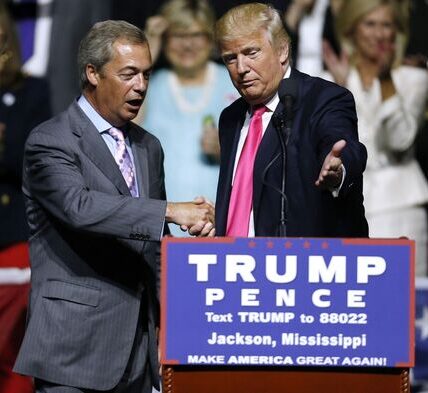The London Stock Exchange is suffering from a mass exodus – its worst in more than a decade, as Keir Starmer’s woes continue with the UK economy on the brink.

The exodus of several firms is another blow to Starmer’s embattled government. (Image: Getty)
The exodus of companies from the London Stock Exchange due to takeovers has reached the highest level in 14 years, in a major blow to Keir Starmer‘s government.
Forty-five firms have dropped their listings in the Capital so far this year because of mergers or acquisitions, according to figures compiled by Bloomberg, as concerns persist that economic conditions are putting off investment.
With the UK economy apparently on the brink, this year has seen a number of major deals, with the sale of video game company Keywords Studios to private equity company EQT, the sale of Virgin Money to Nationwide, and Thoma Bravo’s aquisition of cybersecurity leader Darktrace, according to The Telegraph.
The coming months are expected to bring further sales, including Carlsberg’s purchase of Britvic, and Czech billionaire Daniel Kretinsky’s bid to aquire IDS, the owner of Royal Mail.
Meanwhile, mining giant Rio Tinto, one the biggest firms on the exchange, is coming under pressure to de-list, with activist investor Palliser Capital telling the firm that its Anglo-Australian structure had cost shareholders £39.5bn.

The coming months are expected to bring further major sales. (Image: Getty)
The multi-strategy investment firm has called for an independent review of the arrangement to be launched.
It comes as business leaders and analysts have criticised the UK’s trading environment, with concerns about Britain’s ability to match other major economies.
Nikolay Storonsky, chief executive of fintech firm Revolut recently branded London listing as “not rational”, in an appearance on the 20CV podcast.
Storonsky cited the 0.5% stamp duty tax on trading as a factor, as he questioned how the UK measures up to the US.
This summer, Wealth Club, an investment platform for affluent and sophisticated investors, released its inaugural “British Wealth Report”.
It found that 55% of high-net-worth individuals feel the country does not support wealth creation or creators, while 42% consider the country an unattractive place to set up a business, as per Business Matters.
Meanwhile, 31% said they were more inclined to leave the UK for financial reasons compared to a year ago, in a major blow to Keir Starmer and Rachel Reeves.
Nicholas Hyett, Investment Manager at the investment service, said at the time: “The UK has an image problem. Wealthy investors view the country as an unappealing place to start a business, citing a culture unsupportive of wealth creators and burdensome taxation.
“These individuals are crucial to the UK economy. The top 100 earners contribute an average of £46 million in tax each, while the highest-earning 100,000 cover a quarter of the total income tax and capital gains tax bill, despite representing just 0.3% of UK taxpayers.
“This data, obtained via a Freedom of Information request to HMRC in November 2023, underscores the importance of changing this group’s perception of the UK.”
Last week, a Treasury spokesperson said in an statement to City Am that Chancellor’s “top priority is growth and making the UK the most attractive place to invest”.
“UK capital markets have raised more equity capital in 2024 than the next three European exchanges combined, and recent reforms to Listings Rules will make us an even more attractive destination for exciting businesses,” they added.
A Treasury spokesperson said: “Growth and driving more investment in the UK is our number one mission.
“Recent IPOs and listing announcements by high-growth companies like Raspberry Pi and Canal+ demonstrate confidence in our capital markets and there is more we can do to attract exciting businesses to the UK.
“That’s why we are creating pension megafunds to unlock billions of pounds of potential investment for businesses, as well as backing the largest overhaul of UK listings rules in decades.”
Express.co.uk has approached Rio Tinto for comment.




